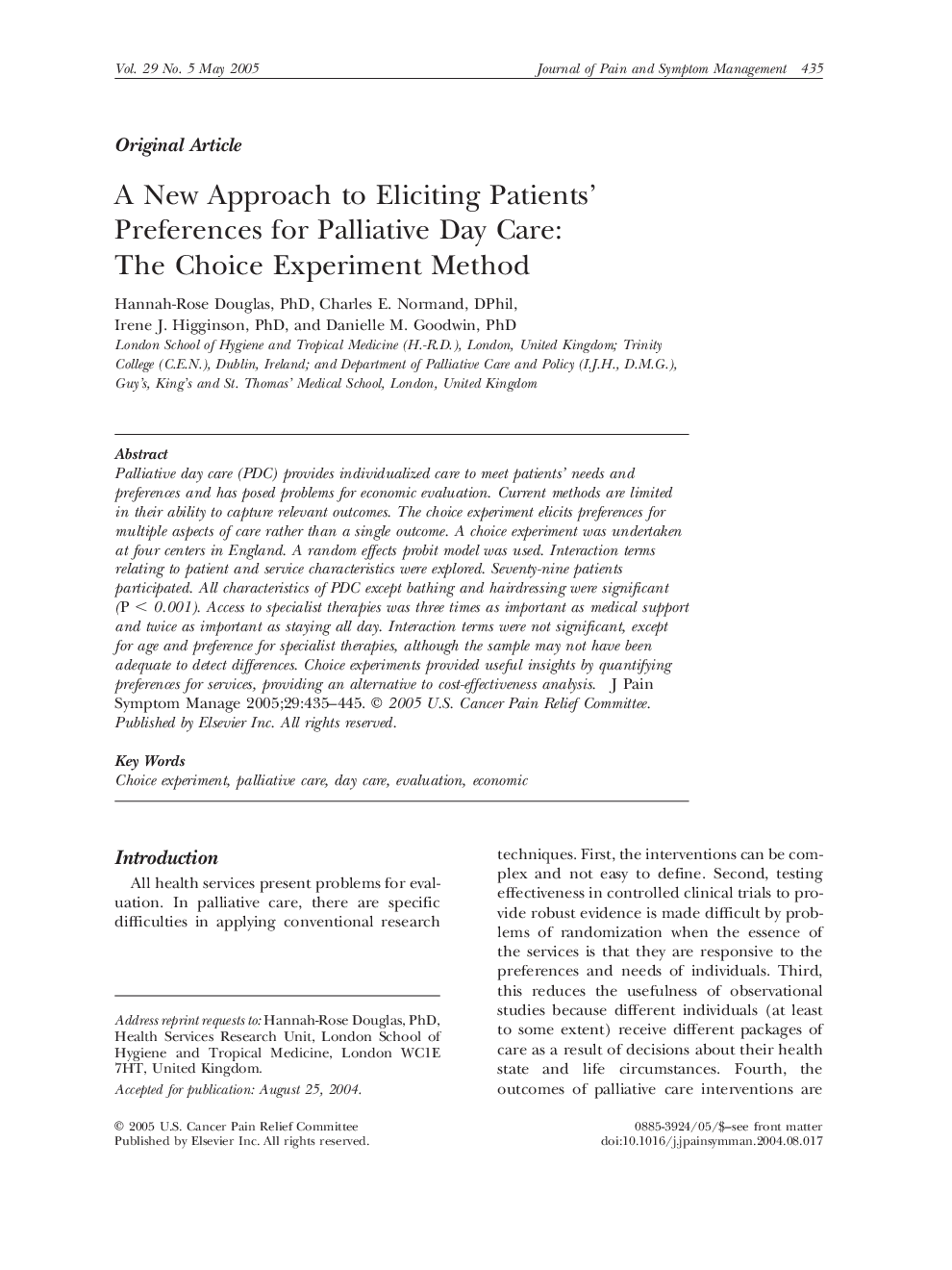| Article ID | Journal | Published Year | Pages | File Type |
|---|---|---|---|---|
| 9085647 | Journal of Pain and Symptom Management | 2005 | 11 Pages |
Abstract
Palliative day care (PDC) provides individualized care to meet patients' needs and preferences and has posed problems for economic evaluation. Current methods are limited in their ability to capture relevant outcomes. The choice experiment elicits preferences for multiple aspects of care rather than a single outcome. A choice experiment was undertaken at four centers in England. A random effects probit model was used. Interaction terms relating to patient and service characteristics were explored. Seventy-nine patients participated. All characteristics of PDC except bathing and hairdressing were significant (P < 0.001). Access to specialist therapies was three times as important as medical support and twice as important as staying all day. Interaction terms were not significant, except for age and preference for specialist therapies, although the sample may not have been adequate to detect differences. Choice experiments provided useful insights by quantifying preferences for services, providing an alternative to cost-effectiveness analysis.
Related Topics
Life Sciences
Neuroscience
Neurology
Authors
Hannah-Rose PhD, Charles E. DPhil, Irene J. PhD, Danielle M. PhD,
